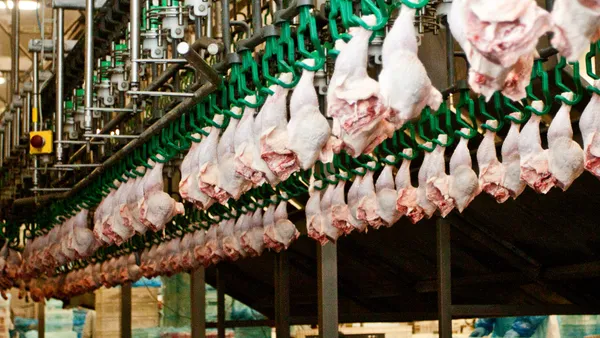Congress is expected to vote this week on a final spending agreement for the U.S. Department of Agriculture that will fully fund a food assistance program for women and children, ending nearly a six-month political stalemate.
Negotiators on Sunday released the final text of the full-year appropriations bill for the USDA, which is slated to be voted on before a March 8 deadline. In addition to making up a $1 billion shortfall facing the Women, Infants and Children program, the bill also strips Republican policy riders on issues including abortion access that were considered untenable by Democrats.
The legislation gives the Secretary of Agriculture a seat on the Committee on Foreign Investment in the United States, which Republicans have said is needed to review farm transactions made by potential foreign adversaries. Federal and state lawmakers have raised concerns over foreign farm transactions, particularly from China, warning of potential national security issues.
Debates over WIC funding stalled progress on the USDA spending bill for months. The USDA had previously warned that states could be forced to turn away new applicants or cut existing services without more money for the program.
In addition to making up the $1 billion shortfall, the bill also maintains the increased Cash Value Benefit that provides more dollars for WIC participants to purchase fruits and vegetables.
“Under the cuts proposed by House Republicans, states would have been forced to deny families WIC benefits for the first time ever — forced to pick and choose which moms and babies should get help and who should go hungry," Sen. Patty Murray, chair of the Senate Appropriations Committee and a Democrat from Washington state. "This was never an acceptable outcome to Democrats."
Other highlights of the bill include:
- More than $3.8 billion for agricultural research programs, including nearly $1.8 billion for the Agricultural Research Service and $1.1 billion for National Institute of Food and Agriculture.
- $1.16 billion for the Animal and Plant Health Inspection Service to protect livestock and plants from diseases including bird flu and African swine fever. Lawmakers also agreed to provide $15 million for electronic identification tags and related infrastructure to comply with federal Animal Disease Traceability rules.
- Nearly $1.2 billion for the Food Safety and Inspection Service, a $32 million increase over last year's levels.
- Around $1.2 billion for Farm Service Agency staffing and $10 billion to fully fund expected loan demand from farmers. The bill also prohibits closures of FSA county offices.
- $915 million to the Natural Resources Conservation Service for Conservation Operations to protect and conserve natural resources on private lands, plus $35 million for Watershed and Flood Prevention Operations.











